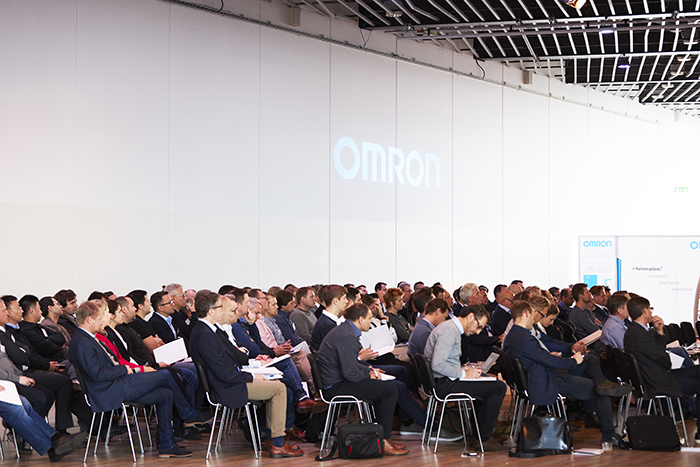An AI business case put forward at Swedish conference
Late last year around 100 professionals gathered in Malmö, Sweden, to attend an Omron conference about the use of Artificial Intelligence (AI) in the manufacturing industry. The conference emphasised the fact that the technologies are ready and available - it’s just the business cases that are waiting for their finishing touches.
What if it was possible to develop a machine learning model capable of predicting that a critical element of your manufacturing equipment is at risk of breaking down just before Christmas, thus making it possible to order spare parts well in advance of the holiday period?
Or, what if you had access to an industrial controller with built-in AI that uses pattern recognition to predict an unwarranted deviation on your filling line that you otherwise would never have detected?
These examples may sound like wishful thinking, but they actually represent two of the applications for AI on the factory floor presented at the conference.
Machine learning enhances quality and minimises down-time
AI is a research discipline that is several decades old. Thanks to exponential technological development and the increasing focus on data, it is also becoming one of the most promising technologies of the fourth industrial revolution.
For the general public, AI is probably most strongly associated with self-driving cars and computer chess, but the Omron conference made it clear that AI and related terms like ‘machine learning’ and ‘advanced data analysis’ are also finding their way into the manufacturing industry.
For example, global ball bearing manufacturer SKF is recognised as an AI pioneer in the industry and is currently standardising production data at all of its factories in order to better utilise the opportunities presented by data collection and data analysis. One of SKF’s first AI projects involved developing a machine learning model that can spot the difference between burn marks and oil stains on ball bearings, therefore helping the manufacturer to improve the quality of its product.

Novo Nordisk has also started taking its first steps with AI and work is in progress on its first model that uses various parameters to inform the operator on a specific manufacturing line how much can realistically be manufactured on that specific day.
The first controller with built-in AI
So, the solutions are definitely available. Proving this point, Omron has just launched a new controller with built-in AI. However, the various presentations at the conference also showed that it is important for a manufacturing company to start their AI journey by asking themselves why they need it.
“You need a business case for AI,” was the key message in the presentation by Kasper Malthe Larsen, Chief Technology Architect at the Novo Nordisk Global IT Department.
“The fundamental question you need to ask yourself is: What information could significantly improve my processes?” added Finn Hunneche, founder of Emendo, a company that offers various solutions, including the Blackbird data collection system.
“Humans are really bad with numbers”
As is the case with many other hyped-up concepts, AI is surrounded by a certain amount of mystery. What is AI in reality? When is a machine intelligent? And what is the distinction between advanced data analysis and AI?
According to AI expert Thomas Terney, one of the keynote speakers at the conference, all of these issues are primarily academic distinctions that will slowly decrease in importance as more complete AI solutions are developed for the industry.
“We don’t talk about intelligent cars - we talk about self-driving cars. And we also don’t talk about an intelligent email filter, but a spam filter. Once something works, we stop calling it artificial intelligence.”
Thomas Terney, who has a PhD in AI and authored the first book in Danish about this field, believes that we need to focus on the possibilities that AI offers for the manufacturing industry.
“Humans are really bad with numbers. That’s why we always prefer to visualise concepts. What we are talking about is an up-and-coming technology that’s really good at deciphering data sets and numbers, but we spend too much time discussing whether or not it’s artificial intelligence.







